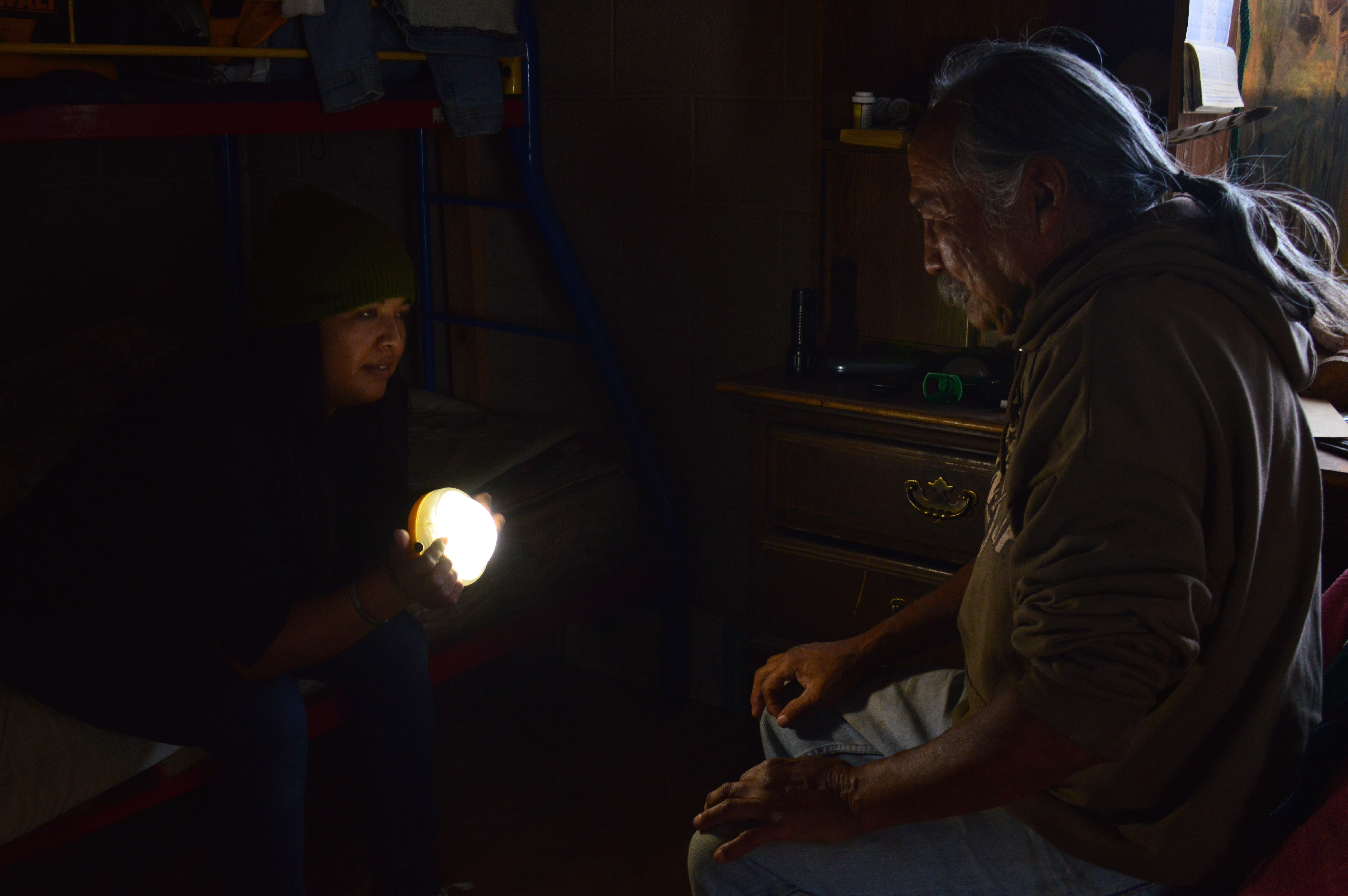We hope you will join us in a celebration of Elephant Energy and our mission to increase access to affordable, clean, sustainable solar energy products in the Navajo Nation and throughout sub-Saharan Africa. The event will be held on Wednesday, October 26 from 6:30pm–8:30pm at the Posner Center for International Development in Denver and will feature locally brewed beer, hors d'ouevers, an amazing silent auction, and inspiring words from Joe Neguse. Tickets are just $45 for the general public and can be purchased here.
We look forward to seeing you on October 26th!
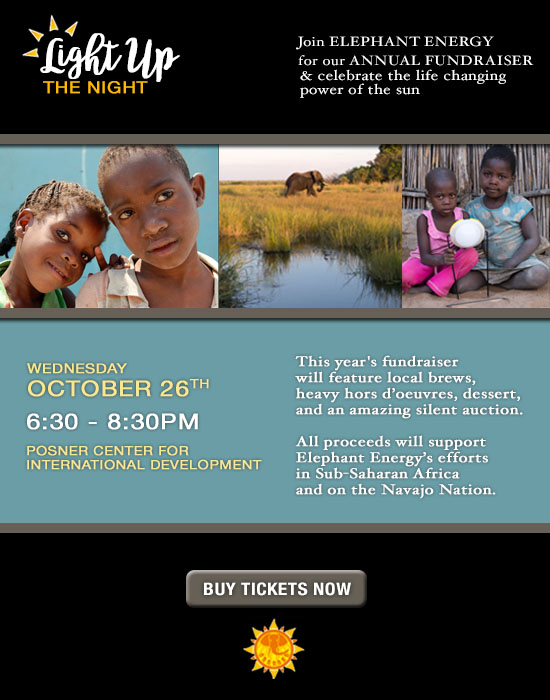
Click here to read more and see the video
]]>Over the past 10 months, Elephant Energy has been creating Solar Light Libraries throughout rural Namibia. Thanks to funding from the World Wildlife Fund, NedBank and NamPower, and working in very close partnership with WorldTeach and Peace Corps Volunteers throughout the country, we are bringing study lights to students in unelectrified communities in Namibia. To date, we have delivered 670 lights to 20 schools–reaching an astonishing 5,893 students. In October, one of the World Teach volunteers we partnered with published a blog post about her light library. We found it to be incredibly inspiring and wanted to share it with you! Click on the link to see how she is using her lights and how she's engaging her students in the process: http://katepiniewski.wordpress.com/2014/10/14/a-little-bit-of-light/.
]]>Elephant Energy 2014 Buy One Fund One Solar Light Sale
Why? Because 1.3 billion people worldwide lack access to electricity and there is something we can do about it.
How? Sell small-scale solar products at your office! Get your co-workers excited about solar energy.
How Much? Buy and fund one Sun King Eco: $25. Or, buy and fund one Sun King Pro 2: $65
Where? The light you fund will go to a child, school or family in Namibia or on the Navajo Nation.
When? Now through the end of December
Ready to get involved?!
Call 720.446.8609 or email juliaalvarez@elephantenergy.org for more information, to become an office champion, or to buy and fund a light!
]]>Wednesday, July 23, 2014
6:30–8:30 p.m.
Posner Center for International Development
Elephant Energy 2014 Barnraiser!
Wednesday, July 23, 2014
6:30–8:30 p.m.
Posner Center for International Development
In rural communities, it’s not uncommon to host a barnraising because, while there are jobs that can be done by one person–there are also jobs (like building a barn) that, no matter how well you plan or how hard you are willing to work, require a community.
Increasing access to clean light, air and energy is one of the tasks that require a community.
Join Elephant Energy as we Raise the Barn, allowing us to continue to improve the quality of life in developing communities.
Please come to the Posner Center for International Development (aka, the Horse Barn) for food, drinks, games, entertainment, a celebration of what’s been done and a look at what’s to come! If you are interested in international development, renewable energy, developing communities or fun, this event is not to be missed. We will have art, jewlery and other products from Namibia and the Navajo Nation for purchase, and you will have an opportunity to sponsor a solar light for one of our customers or entrepreneurs in Namibia or the Navajo Nation.
Visit this site for more information and to buy your tickets: http://elephantenergy.givezooks.com/events/elephant-energy-barnraiser
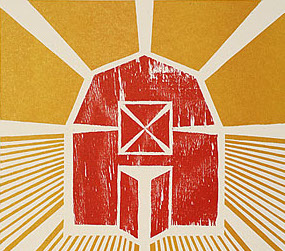
Tuesday, April 22nd, 2014 by Adrian Manygoats
Ya’at’eeh! My name is Adrian Manygoats. I am a Program Manager for Eagle Energy on the Navajo Nation (Eagle Energy is the name Elephant Energy goes by on the Navajo Nation). My personal mission is to empower indigenous people to lead by example and to do meaningful work that will benefit future generations... Keep Reading >

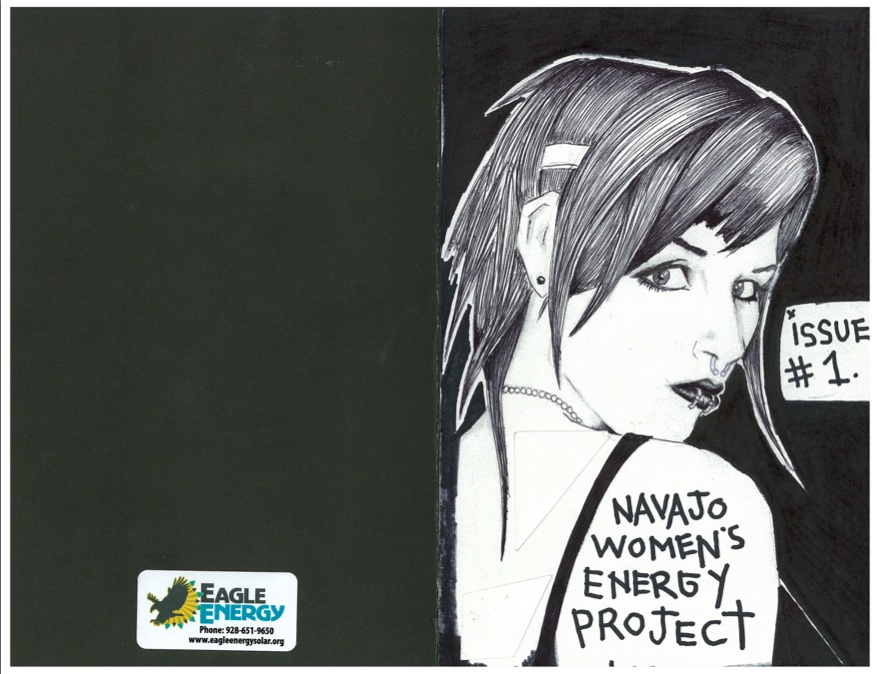
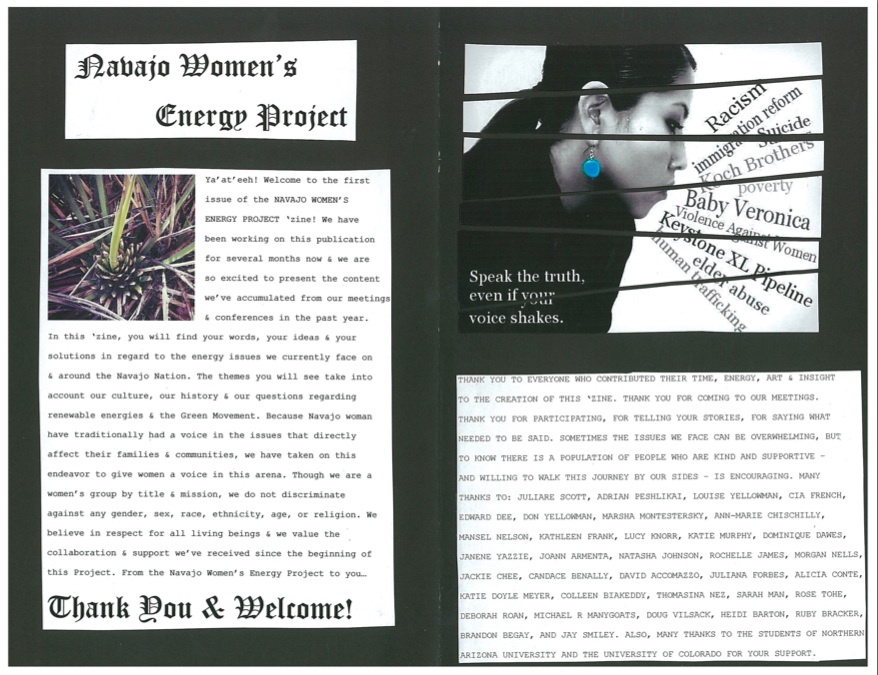
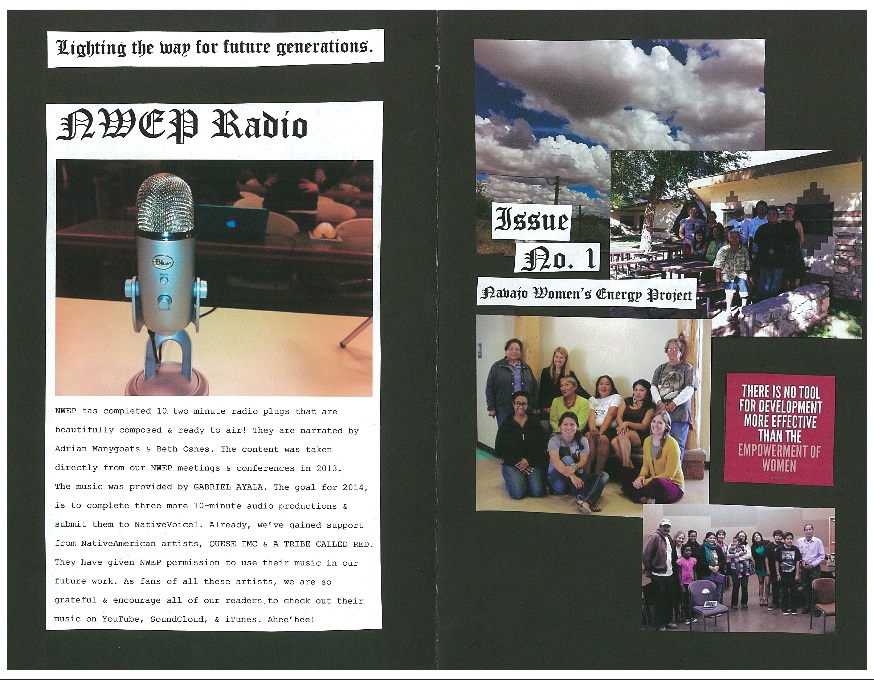
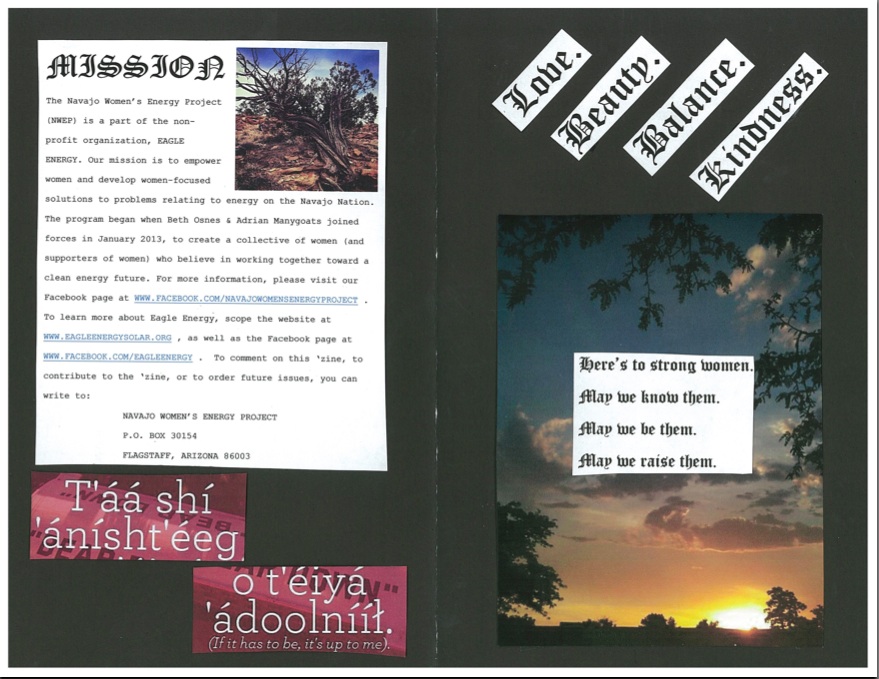
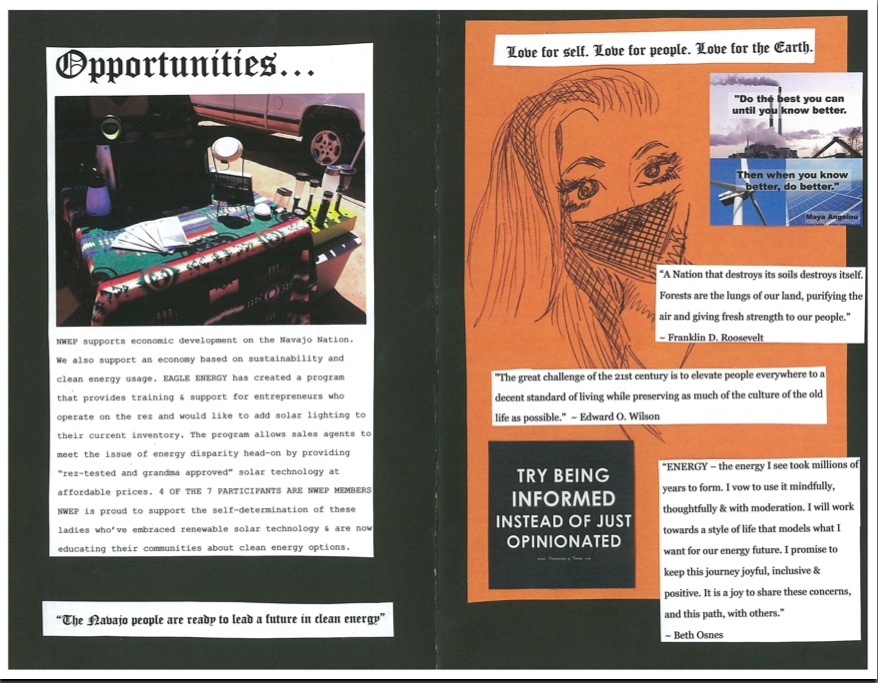
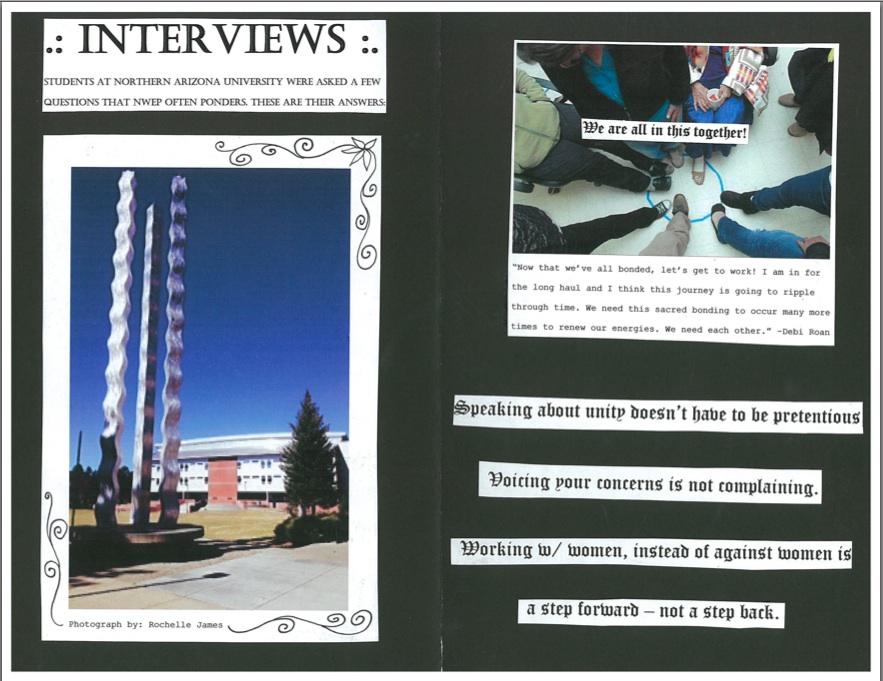
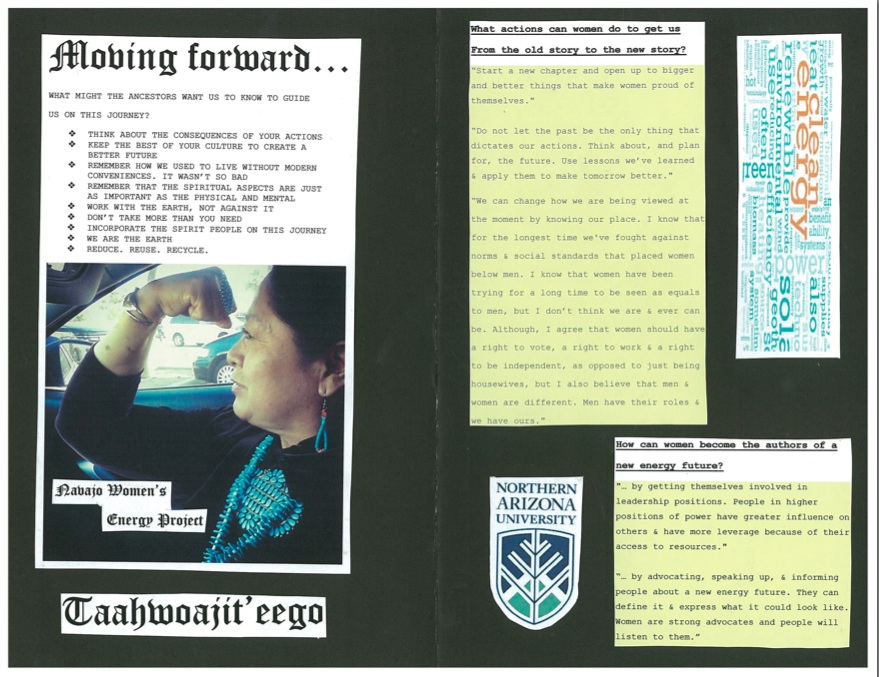

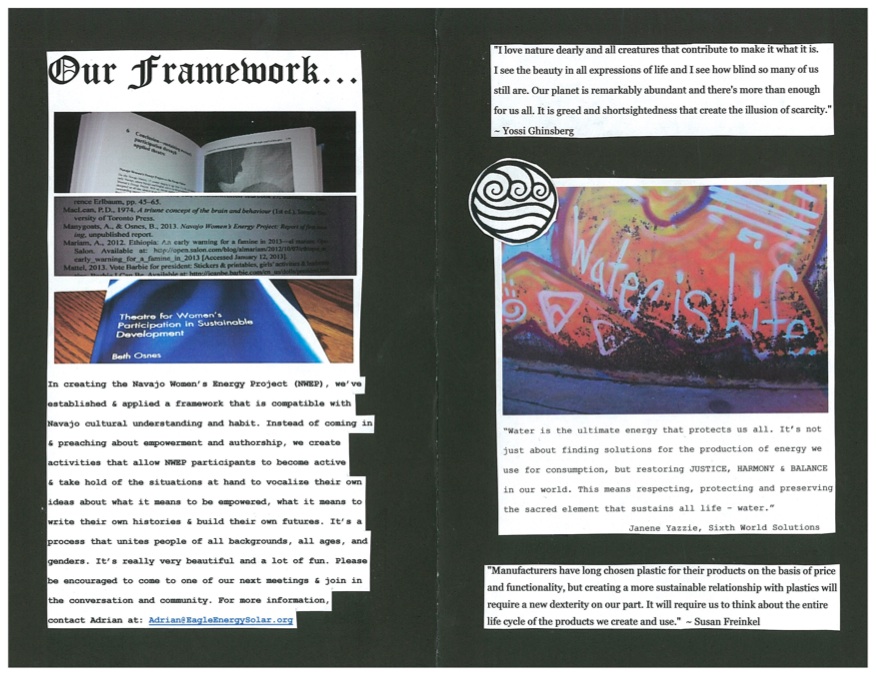
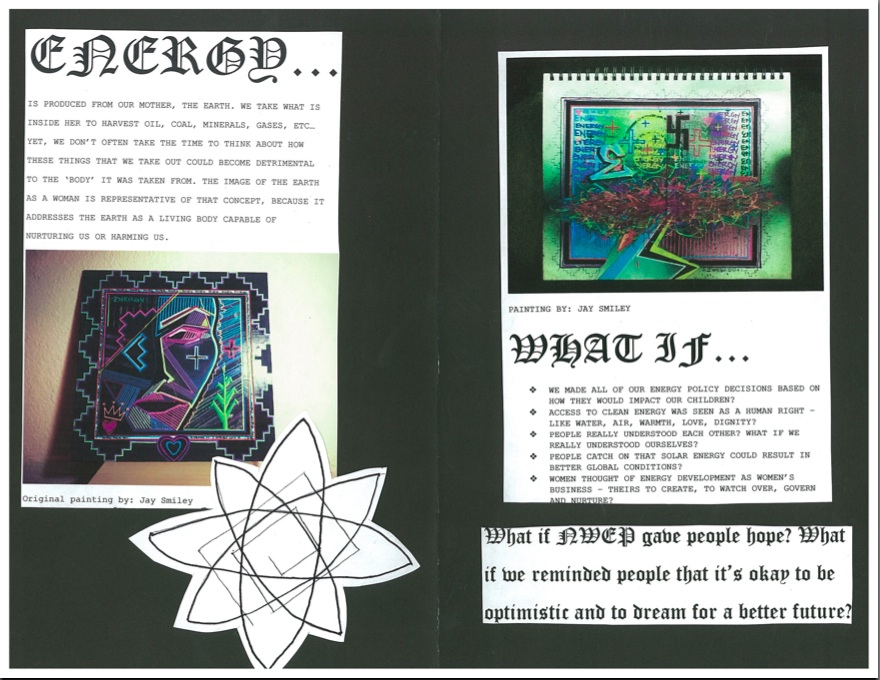
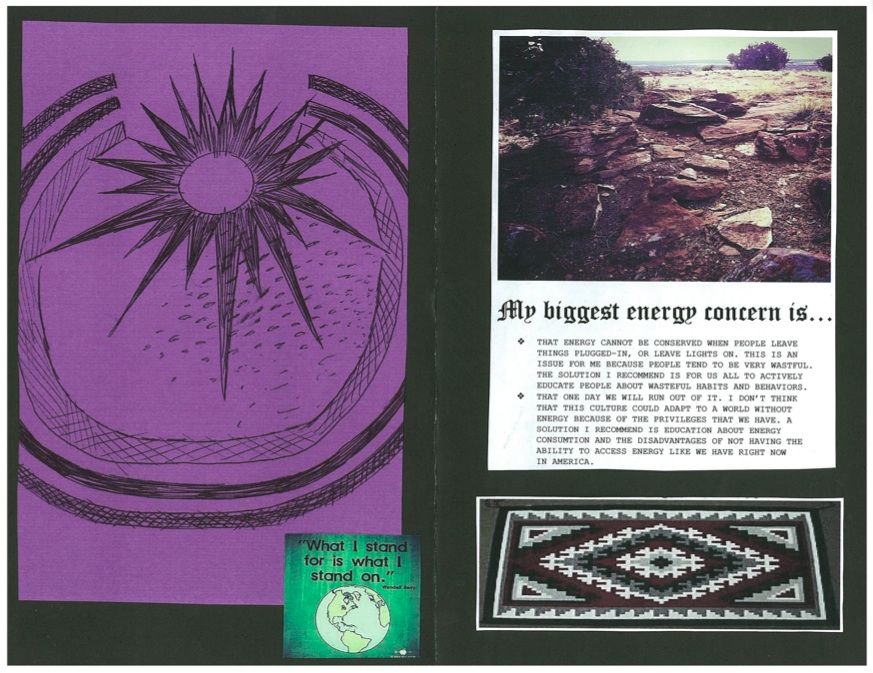
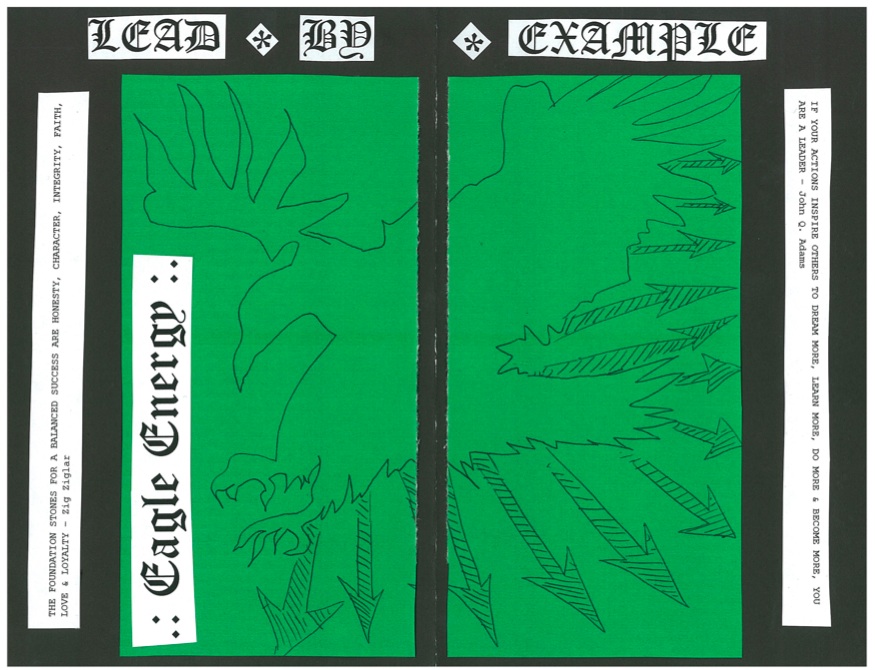
]]>
STEVE FELTON
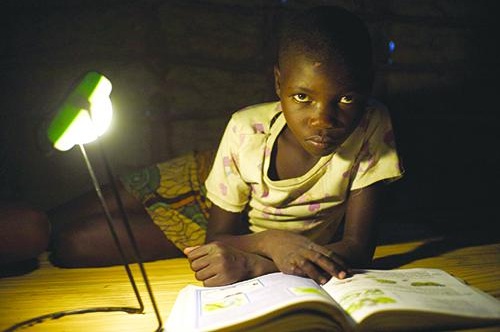
EARTH Hour is coming. Every March the WWF engages the world – 196 countries and over 7 billion people – to think about energy, conservation, and how we can all fit on the planet without stripping it of its resources: how we can leave some over for the next generation.
Earth Hour is this Saturday, 29 March.
It all started in Sydney, Australia in 2007, when 2.2 million residents participated by turning off non-essential lights for an hour in the evening. All at once the city was dark. Everybody could see the wonder of the night sky, and think for an hour about just how much electricity we use, and the coal and nuclear power stations needed to produce it. In 2008 more countries took part, and by 2013 most of the world was switching off for an hour for the sake of the environment.
Now if you live in Ngonga, a tiny village in Zambezi Region, and somebody asks you to turn off the lights for an hour, you might look a bit confused. There is no electricity in Ngonga. In fact, over 75% of Namibians do not have access to electricity. So instead of switching off the lights for an hour, it is worth thinking about how to bring light to rural Namibia without using power stations.
When night falls, many people light up a candle. But every candle costs 3 or 4 dollars, and every year many homes are burnt down due to accidents. The fumes from candles and paraffin lamps are also unpleasant
That’s where Earth Hour comes in. This year Nedbank’s Go Green has donated N$45,000 to provide solar lighting to schools in the north of Namibia as an Earth Hour initiative.
Lying on the floor of her mother Anna Mulisa’s hut is Nyazo Mushekwa. She’s in grade 3 at Ngonga Primary. The solar powered light gives all the light she needs to do homework. Her mother loves it too – she can find things at night, including scorpions.
The light is distributed by Elephant Energy, a non-profit organization that is rolling out solar powered lights, starting with 4 schools in Zambezi in March, and more throughout the year across other areas of Namibia without access to power.
For Earth Hour, Nampower has promised to match Nedbank’s funding to bring solar lighting to Namibian schools.
If candle lasts three hours and costs N$3, over five years candle light would cost more than N$5 000. A light powered by the sun, costing just N$250, can give clean, safe light for five hours every evening.
Elephant Energy plans to sell lights almost at cost to households across Namibia, but many people cannot afford N$250 at one go for a solar lamp.
But for every problem there is a solution. Organisations like the Shack Dwellers can save together and give credit to members, and Elephant Energy sells ‘Divi-Lights’ that take two kinds of charge: one from the sun, and a cash recharge rather like telephone credit.
Once the credit is paid off the light is ‘freed’ for use, needing only the sun to charge it.
Access to cheap, off-grid electricity is going to change things for rural Namibians, who will be able to read at night, charge phones and run computers where there are no power lines.
That’s a bonus for Earth Hour.
- See more at: http://www.namibian.com.na/indexx.php?id=11064&page_type=story_detail
Thursday, March 27th, 2014 by Katie Murphy
Welcome to the first entry in Elephant Energy’s blog! Keep Reading >
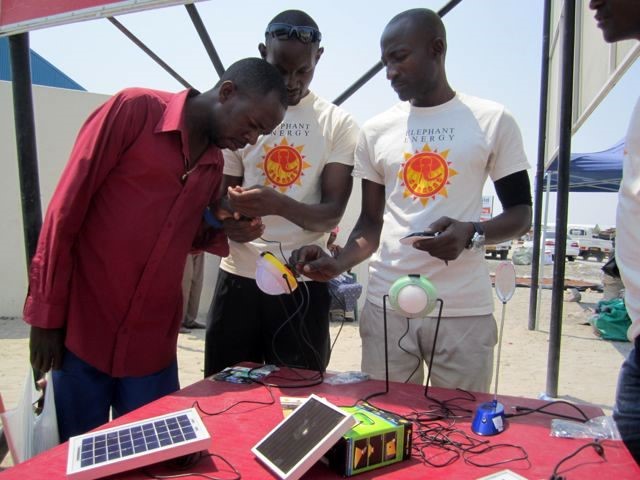
Check out the Huffington Post article featuring Elephant Energy and their upcoming partnership with divi Inc. & USAID
By Justin Guay Posted: 03/17/2014 12:40 pm EDT
http://www.huffingtonpost.com/justin-guay/solar-power-in-a-bottle_b_4979965.html
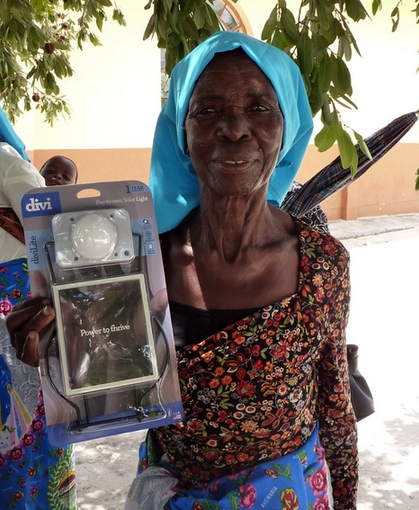
There is no more innovative market than off-grid solar. From pay-as-you-go solutions to M2M technology, entrepreneurs are developing solutions tailored to the energy needs of the 1.3 billion people living in energy poverty around the world. Now, thanks to support from US Agency for International Development (USAID), Elephant Energy and divi, Inc can add yet another innovation to this exciting space -- solar in a bottle.
Every day, 1.3 billion people (20 percent of the world's population) that lack access to electricity pay the price in the form of compromised health, well-being, education, and livelihoods. The most glaring example of that is the fact that consumption of Kerosene and other forms of fuel-based energy can compromise upwards of 30 percent of a poor household's energy budget in Africa. These households keep buying Kerosene because it has a low upfront cost and they can buy it in incremental amounts that reflect their small and unpredictable cashflow.
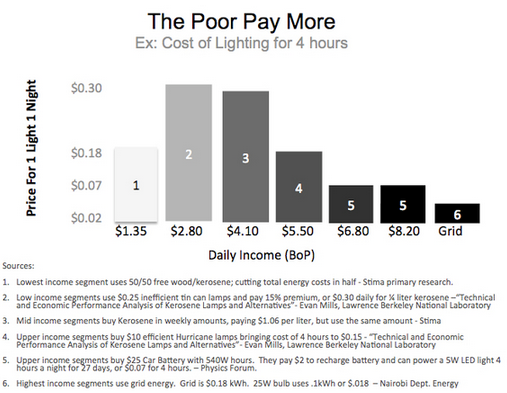
Solar is an appropriate technology for meeting many of the basic energy needs kerosene currently serves -- such as light for studying or cooking, and electricity for charging mobile phones. But its upfront costs have often made it prohibitively expensive for many of those most in need of energy solutions. Were an entrepreneur able to "bottle solar energy" -- thereby making it just like Kerosene -- the poor could and would pay for this far superior form of energy.
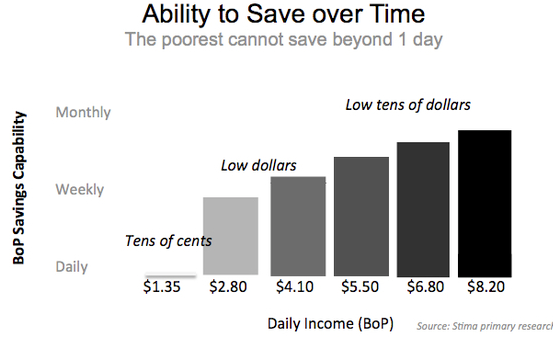
Enter Elephant Energy and divi, Inc. Elephant Energy is a Denver-based non-profit organization which operates market-based distribution networks in Namibia, Zambia, and the Navajo Nation. The organization works with known entrepreneurs and businesspeople in the local areas to deliver solar energy products in rural communities, in addition to providing sales and marketing training to these agents.
Near the end of 2013, they were awarded $500,000 in a second stage funding grant from USAID's Development Innovation Ventures program, to support their Creating Digital Kerosene Project. This project uses a pay-to-own system of credit to make energy products (such as solar lamps and cell phone charging devices) affordable by payment through weekly installments. The goal is to provide light to 16,000 homes in the next two years.
Their unique innovation is a Bluetooth chip that allows specific solar devices to talk to other devices (M2M technology). For rural communities, this means that sales agents can "unlock" solar lamps when customers pay their bills (and "lock" them when they don't). Once the customer has paid the installments adding up to the full cost of the light, their light becomes permanently unlocked.
This pay as you go technology isn't entirely new -- we've covered it before here. What is new is that divi provides the ability for customers to swap credits through M2M technology. It's like a neighbor having the ability to 'borrow or sell' kerosene depending on their cash flow. This is a truly exciting innovation that makes solar energy a fungible commodity; in essence, it bottles solar energy.
Given how advanced digital kerosene is, it's no surprise that Elephant Energy is already exploiting financial innovations that are unlocking much needed capital for these markets. The organization has already taken advantage of solar crowdfunding using Kiva and GlobalGiving platforms. Which is just another example of the importance of crowdfunding in laying the financial foundations of this market.
But when all is said and done, it's the $500,000 from USAID that helped unlock this innovation. It's a great example of what targeted support for off-grid clean energy access interventions can do. With the Electrify Africa act moving through congress, these types of success stories may have more support in the future. But that's only if the legislation changes course and prioritizes mini-grid and off-grid interventions to energy poverty.
The International Energy Agency (IEA) suggests the majority of investment flow to these solutions but current investment from Power Africa institutions, as well as the World Bank, overwhelmingly support centralized power projects at the expense of distributed renewable energy technologies organizations like Elephant Energy are pioneering. It's time more institutions followed USAID's lead and unlocked innovation and energy, for the world's poor.
http://www.huffingtonpost.com/justin-guay/solar-power-in-a-bottle_b_4979965.html
]]>